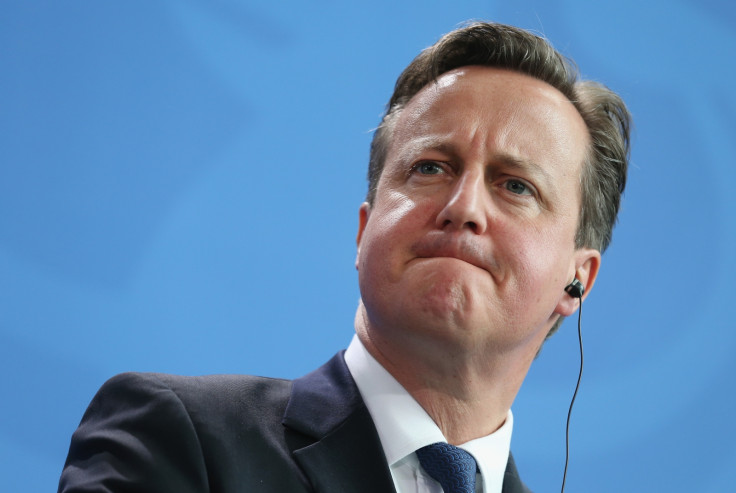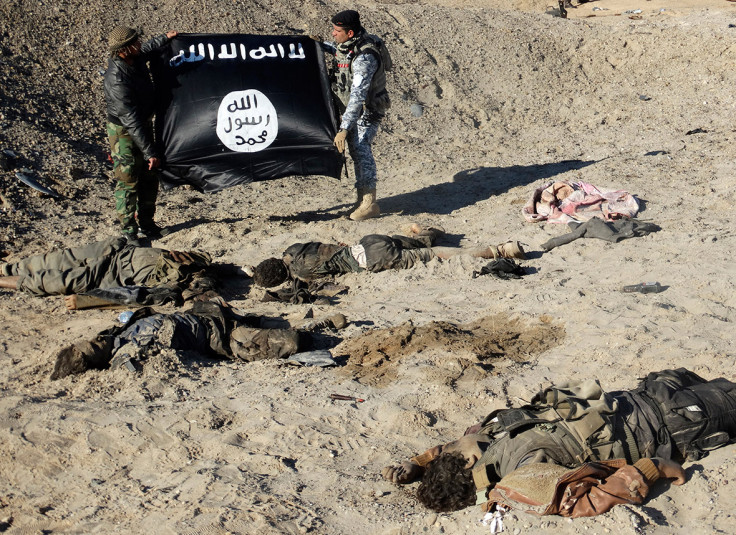7/7 London bombings: We have learned nothing

Ten years since the 7/7 bombings in London, and it would seem that Britain's relationship with the Arab world is in a precarious state. Ten years on, images of dead British tourists on a Tunisian beach accompany that of the number 30 bus, its roof blown off in London's Tavistock Square. Aside from the bombs, our society risks further polarisation. This is where extremism will really thrive.
Today we find ourselves asking similar questions that were asked about Hasib Hussain, Mohammad Sidique Khan, Germaine Lindsay and Shehzad Tanweer, four young men from Yorkshire, four British citizens. Post-7/7, with genuine shock, in sadness and in anger, the nation asked why did they do it? What made a young man from Yorkshire strap explosives to himself and blow up his fellow countrymen on the Underground?
We must ensure that Muslim communities, become, and are welcomed more into the fabric of British life, rather than allowing further alienation in a vicious climate where far-right attitudes as well as hard-line Muslim views are on the rise.
Ten years on we are asking what is driving young British Muslim men and women to head to Syria and Iraq to fight for Islamic State (Isis). Today we feel outrage and the anger that roughly 600 Brits (just 0.02% of the UK's Muslim population) have gone to Syria and Iraq, but the shock and surprise seems to have diminished. We appear anaesthetised to the devastation and suffering in Syria, where more refugees and images of death are no longer as shocking as they were a few years ago.
There is a dangerous sense of inevitability seeping in about those travelling to fight for IS. Many in the UK have become accustomed to the idea (and have perpetuated it) that British Muslims are a threat, the 'enemy within' or as UKIP's leader Nigel Farage put it, part of a 'fifth column'.
In the responses of Blair in July 2005 and Cameron in 2015 following the attack in Sousse both talked of two narratives; effectively a good versus evil, a British values based system versus an existential threat that deplores said values (without them ever being fully explained).
David Cameron told BBC Radio 4's Today programme on 29 June that it is "a battle of our values and our narrative against their values and their narrative" and that we "have to stand united with others who share our values", comments which echoed those of Tony Blair in 2005, who spoke of "a global struggle...a battle of ideas, hearts and minds, both within Islam and outside it".
Blair continued that confronting the barbarism of terrorism "means championing our values of freedom, tolerance and respect for others. It means explaining why the suppression of women and the disdain for democracy are wrong."
How does the rhetoric about values hold up, given our support of regimes whose behaviour clearly contradicts the "British values" that the prime minister and others speak of? Some of the government's attitudes towards Israel, Saudi Arabia, Bahrain, and Egypt are clearly questionable.
How can Cameron speak of British values versus those depraved ones of IS, and yet maintain a friendly relationship with Saudi Arabia? In our friendliness with Saudi Arabia, are we claiming it is not by definition 'extremist'? Does Britain really share the same values when President Sisi's Egypt is clamping down on journalists, and its judicial system is in chaos?
The list goes on.
Perhaps the sound bites dished out by Cameron post-Sousse and Blair post-7/7 appealed to some in the country, but without proper explanation and clarity they create and enforce the idea that Islam in Britain, and the Arab world more generally, is fundamentally and intrinsically removed from a British value system.
Yet again, they demonstrate a misunderstanding of British Muslim communities and of the Arab world. They appear to neglect the fact that both prior to the 7/7 bombings and the attack in Sousse, Muslims are overwhelmingly the victims of terrorism in the region.
Ten years on we appear as confused as ever before about radicalisation, alienated British Muslim communities, and the root causes of conflict in the Middle East. All too often there is a yawning chasm between the media and politicians, and British Muslim communities, and especially their relation to events in the Middle East.
For the past ten years there have been demands on British Muslims to collectively condemn terrorism. This includes those attacks on British soil or on British targets; Al Qaeda's bombings in London, the murder of soldier Lee Rigby in Woolwich, or IS's beheadings of hostages David Haines and Alan Henning in Syria, as well as the latest attack in Tunisia.
At the beginning of Ramadan on 19 June, David Cameron accused some Muslim communities of "quietly condoning" IS. The majority of Muslims resent this questioning of their 'loyalty'. It is appalling to insinuate that extremism is part of the Muslim belief system or that British Muslims would not be as horrified as anyone else with such acts of terrorism.

Against this backdrop, Islamophobia is increasing. According to Tell Mama, religiously aggravated incidents increased by 573% in the three weeks after the 7/7 bombings. In the three months following Lee Rigby's murder anti-Muslim incidents increased by 282% and the week after the attacks on Charlie Hebdo, incidents increased by 275%. Islamophobic incidents in France increased by 23.5% in the first six months of 2015.
There are as many questions asked of Muslims about condemnation as there are about what led the young men of the 2005 bombings to do what they do, and what motivates people to fight for IS today. Elements of society will ask why do Muslims march against the Iraq war, and over Gaza, yet do not march against IS brutality.
But why is the Muslim removed from the discussion about victims, and only seen as a perpetrator? Either those in Syria and Iraq who are being murdered by those such as IS, or in the UK whose lives are made worse by association with IS and heavier scrutiny, suspicion and targeting.
In 2011, the then Conservative Party chairman Baroness Sayeeda Warsi said that anti-Muslim prejudice had "passed the dinner table test", that Islamophobia had become accepted. Far more worrying today is that is it has gone beyond that, particularly in political rhetoric, particularly in discussions about the perceptions of British Muslims, views about the Middle East, or refugee crises.
Political parties such as Ukip (and similar ones across Europe) have thrived because of their Islamophobia, and in a political climate where they are not held accountable for it. One could even argue that it is fashionable.
Terrorism and an anti-Muslim attitude is partly responsible for sympathy and empathy towards Syria's refugee and humanitarian crisis being eroded. The Syria-fatigue in the UK is becoming something much more sinister, with refugees often regarded as complicit in their own situations, undeserving of sympathy, aid and resettlement. There is an enhanced fear over people reaching Europe across the Mediterranean. Some 68,000 people who have arrived in Greece by sea, and 67,500 in Italy in 2015 alone are seen more as threatening or inconvenient migrants, rather than people in desperate need. To date 1,867 people have died.
Even before the Sousse attack, there were fears and heightened hysteria over travelling to Egypt and Turkey, other countries in the Arab world, and even Greece due to the refugee crisis. All too often, political rhetoric blurs the boundaries between ISIS and refugees, who are often seen as one and same thing, and the concern becomes more about ruined holidays and chaos at Calais, rather than nearly 15 million people displaced in Syria and Iraq combined.
As the bombings took place in 2005, Iraq was at the heart of our foreign policy. Iraq has only been re-remembered since the rise of IS and establishment of the 'Caliphate' just over a year ago. Despite our involvement, and our moral responsibility towards Iraq, it only seems to be in both political and public consciousness when it truly implodes and the worst is allowed to thrive.
Over the course of ten years, we have witnessed the continual bloodshed in Iraq which has left more than 128,000 dead, the largest humanitarian crisis the world has seen since the Second World War in Syria (displacing nearly 12 million people), 3,124 dead in Aleppo between January 2014 and March 2015 as a result of the Assad regime's barrel bombs, more than 3,000 dead in a year of IS's so-called 'Caliphate' in Syria.

There have been four major assaults on Gaza (leaving more than 4,000 Palestinians dead and nearly 100 Israelis). More than 3,700 people have died in violent attacks in Libya in 2014 and 2015. In Yemen there are 21.1 million people (80% of the population) who require humanitarian assistance, and the polarisation in Egypt continues, with a judiciary system that is becoming increasingly rotten.
Nearly 3,200 were killed in the seven-month period following the overthrow of President Morsi and instability is increasing in the Sinai Peninsula. Three bombings on Shia mosques in Saudi Arabia and Kuwait also left 53 dead in a six-week period in a climate of increased sectarian tension in the Gulf as a whole. In 2014, some of the conflicts listed above, claimed more than 100,000 lives.
We must be consistently cautious that a military response is not the standard go-to immediate discussion after such attacks – even if it is part of the solution.
Today, on the anniversary of the 7/7 bombings, more intervention in Syria and Iraq is on the table, and MPs may be asked to consider air strikes on IS targets. When parliament debated military strikes on Syria in August 2013, it was said that this was a debate that should have happened ten years earlier about Iraq. Have we truly learnt the lessons of military strategy in Iraq?
We must be consistently cautious that a military response is not the standard go-to immediate discussion after such attacks – even if it is part of the solution. Hysteria emboldens ISIS further, and yet collectively, with regional partners, we are still failing to incentivise the communities most influenced and affected by IS.
We also risk further alienating people at home, when we fail to address the legitimate grievances of different communities, particularly when the need to find real and collaborative ways to engage communities rather than political posturing is so urgent.
We must ensure that Muslims communities, become, and are welcomed more into the fabric of British life, rather than allowing further alienation in a vicious climate where far-right attitudes as well as hard-line Muslim views are on the rise. If not, on the 20<sup>th anniversary of the 7/7 bombings, we will still be asking the same questions.
Joseph Willits works for Caabu (Council for Arab-British Understanding). Follow him on Twitter @josephwillits.
Read more: 7/7 London Bombings 10 Years On commemorative magazine
© Copyright IBTimes 2024. All rights reserved.






